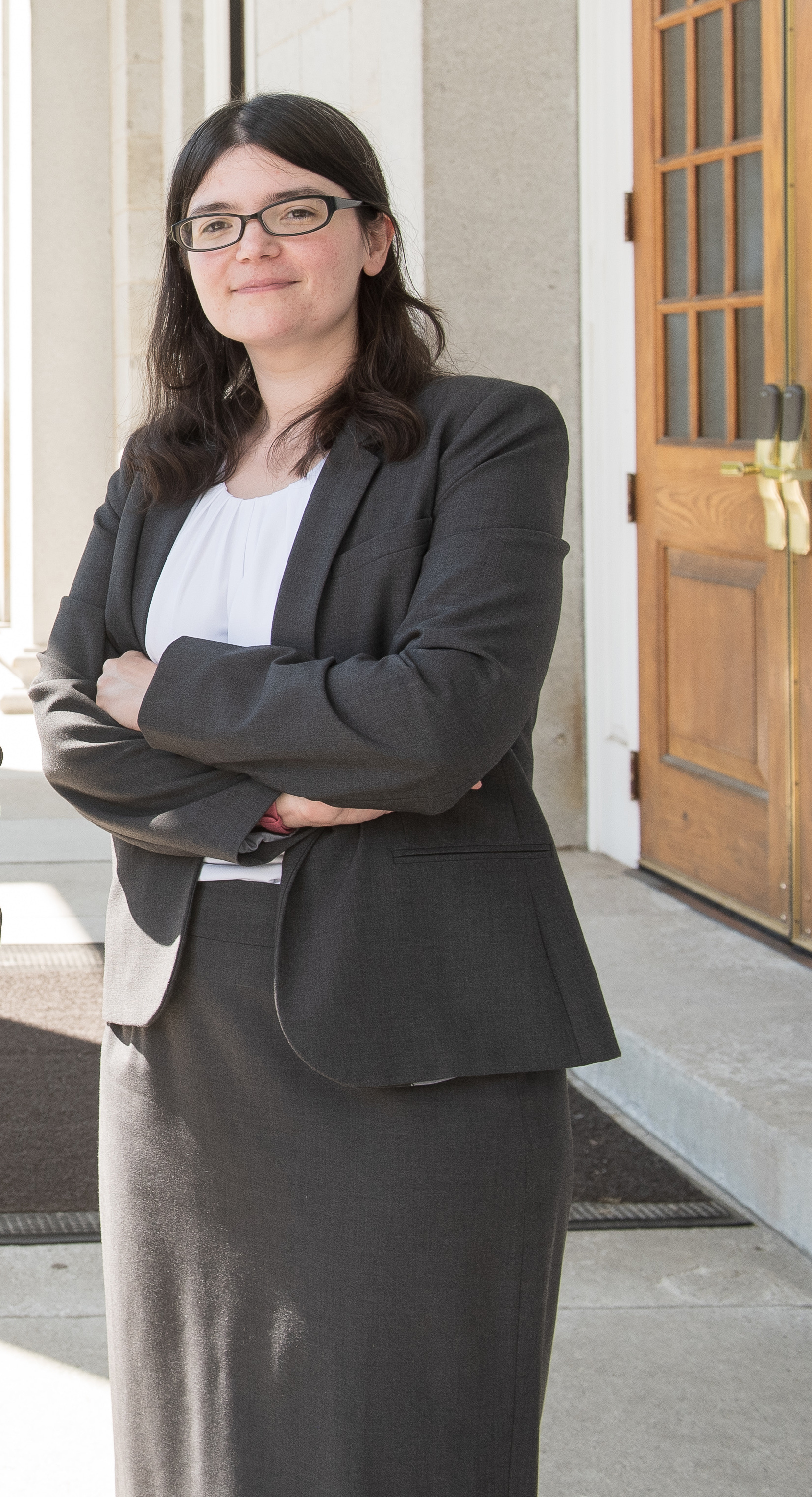Attorney
Natalie Laflamme

‘We’re still making the same arguments to a court. And we’re still waiting for the state to fix its funding system,’ says Natalie Laflamme, one of the lead attorneys in the most recent school-funding lawsuit, which focuses on property tax inequities. (Photo by Kate Brindley)Natalie Laflamme, valedictorian of the class of 2007 at Berlin High School, earned her B.A. in Philosophy, cum laude, at Georgetown University, where as a member of the pep band she “dazzled on the saxophone, cymbals and, most notably, the cowbell.” While at Duke University School of Law, Laflamme interned with the Federal Aviation Administration, Legal Aid of North Carolina and the Equal Employment Opportunity Commission as well as assisted Deferred Action for Childhood Arrivals (DACA) applicants.
After returning to New Hampshire, she clerked for Supreme Court Justice Robert J. Lynn, worked for a Concord law firm and taught at the UNH Franklin Pierce School of Law before opening her own practice in 2019, when she teamed up with attorneys Andru Volinsky and John Tobin to renew the challenge to the state’s system of funding public education.
Q. Looking back on your school days in Berlin, how did the school-funding system affect the educational experience of you and your classmates?
A. My classmates and I were aware that our school, and city, didn’t have as much money as others in the state, and we seemed to have fewer class choices and extracurricular activities, but I don’t think any of us understood how schools were really funded or thought about how a more equitable system could improve our education. I think the school system and the community deserve a lot of credit for us not feeling more deprived, given how the state’s funding system does Berlin no favors.
Q. From your experience, how has the burden of property taxation affected the quality of life in communities like Berlin that have undergone significant economic dislocation?
A. With a more equitable tax system, I imagine Berlin would be different today. The onerous tax burden leads to a vicious cycle that breeds friction and dissension within communities. People in these communities point to their government and their schools as the problem. The local elected officials take a lot of heat and get accused of wasteful spending or worse. If the state met its constitutional obligation to fund public education, the corrosive effects on local communities would be lessened.
Q. How did you come to join the legal team behind the most recent round of school-funding litigation?
A. I met John Tobin in 2018. We’ve both lived in Berlin, and through chatting about that, the issue of school funding came up. Around that time, he and Andru Volinsky were raising public awareness through their Ed Funding 101 presentations. I had also read an article John wrote in the NH Bar News about the problems since the Claremont decisions and how a new lawsuit might come about.
I told John I was down to help for whatever came up. That led to co-writing an amicus brief in the ConVal case when it was on appeal, and later the (most recent) Rand lawsuit. The suit is a real team effort, with the three of us in New Hampshire, the Education Law Center, and a team of attorneys from White & Case in New York all researching, writing and strategizing.
Q. How has your partnership with Andru Volinsky and John Tobin shaped your understanding and approach to the practice of law?
A. Working with John and Andy has been great. One thing I miss out on as a solo practitioner is getting to work with, and learn from, other attorneys. They are both experienced, talented lawyers who are experts in this subject.
I am impressed by their ability to effortlessly think about the big picture and all the stages of a case all at once. Sometimes it’s like they are simultaneously thinking three steps ahead, recalling two steps ago, while following a parallel track. The three of us have different styles and ways of thinking, and it’s been a great learning experience seeing how those different approaches and ideas can come together to form a cohesive case strategy.
Q. Has becoming a mother sharpened or personalized your sense of the importance of ensuring optimal educational opportunities for all children irrespective of their ZIP code?
A. I don’t really personalize the issue. I feel as strongly about educational opportunities for every student as I did before I had a child. Becoming a parent has brought into sharp relief how long this saga has been going on. The first Claremont lawsuit was filed when I was 23 months old. Coincidentally, we filed the Rand case when my daughter was 23 months old. A literal generation has passed, and we still have the same problems. We’re still making the same arguments to a court. And we’re still waiting for the state to fix its funding system.